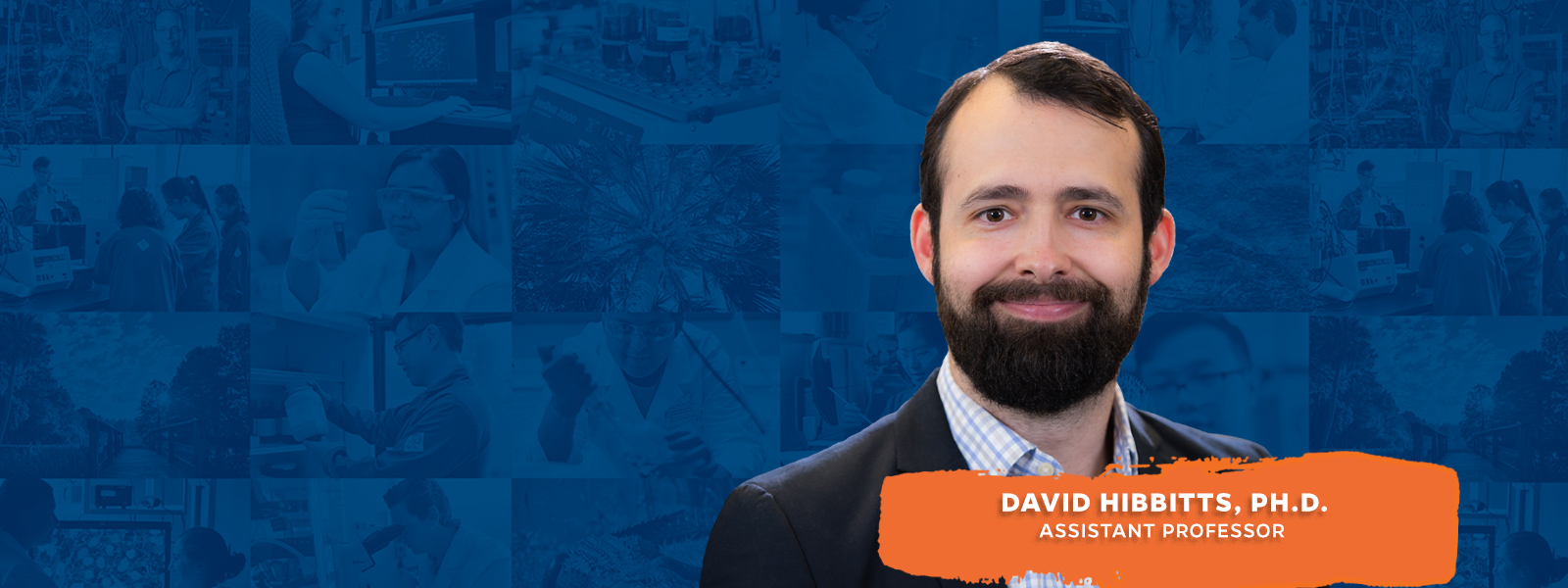David Hibbitts, Ph.D., an assistant professor in the Department of Chemical Engineering (ChE), was awarded a $450,000 grant from the National Science Foundation to explore the role of water in Fischer-Tropsch Synthesis (FTS) catalysis, a chemical reaction that converts carbon monoxide and hydrogen into water and hydrocarbons, and how to use those discoveries to create new materials that can lead to more efficient and selective FTS catalysts.
FTS is critical and applicable to the commercial process of upgrading feedstocks such as natural gas, coal, or biomass into useful chemicals and fuels.
“A product of the FTS reaction is water, and we are trying to understand how the presence and concentration of water alters the rate and selectivity of the chemical reaction,” Dr. Hibbitts said.
Dr. Hibbitts noted the discovery that water is condensed within the pores of FTS catalysts at industrially-relevant conditions would provide a shift in our understanding of FTS and would have the potential to create new strategies for improving FTS catalyst reactivity, selectivity, and stability, and lead to improvements in converting natural gas, coal, and biomass into liquid fuels and chemicals.
Dr. Hibbitts leads the Hibbitts Catalysis Lab, which is focused on understanding catalysts at the molecular level by combining kinetic and isotopic experiments with computational chemistry. The lab develops atomic-level understanding of heterogeneous catalysts usingexperiments and density functional theory calculations to develop structure-function relationships critical to the development of new catalysts and chemical processes.
The three-year grant will support collaborative work between Dr. Hibbitts and Dr. Nicholas A. Brunelli (The Ohio State University). This project will leverage programs at both universities to support the development of a three-week, on-campus internship for secondary school science teachers, where they will learn to apply computational science-based lesson plans in their classes. The project will also provide opportunities for high school and undergraduate students to participate in computational catalysis research.

